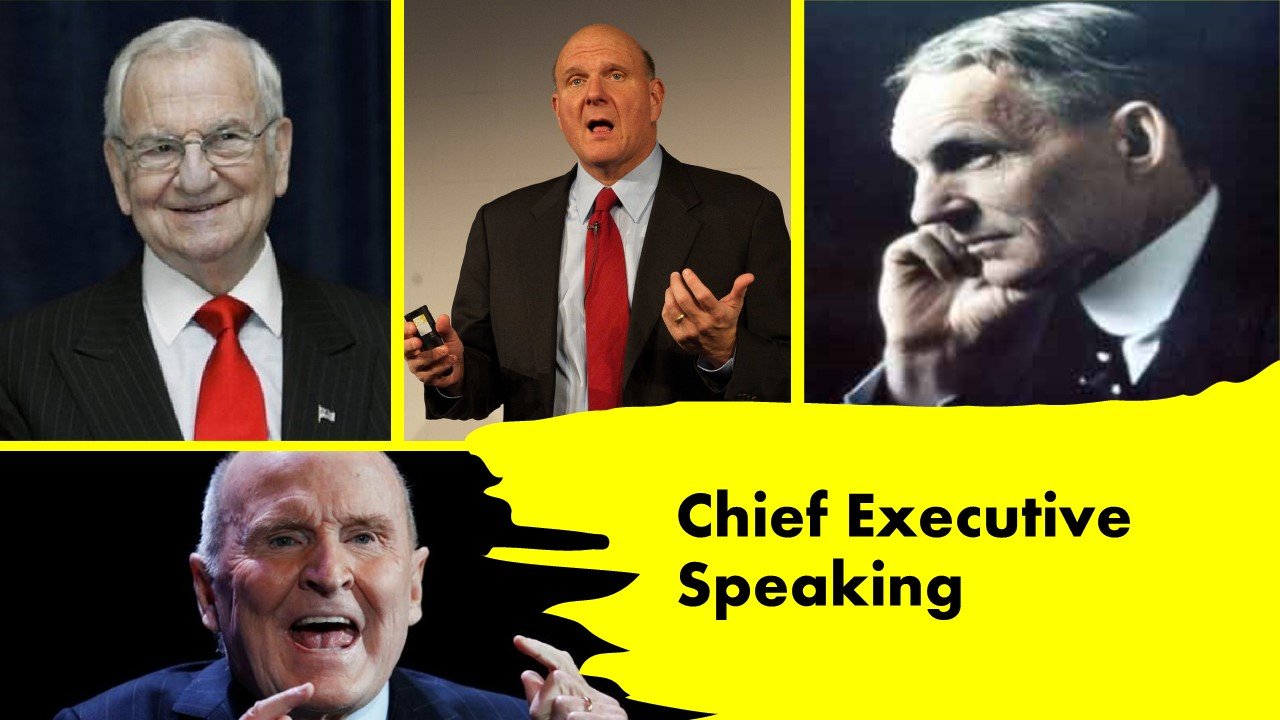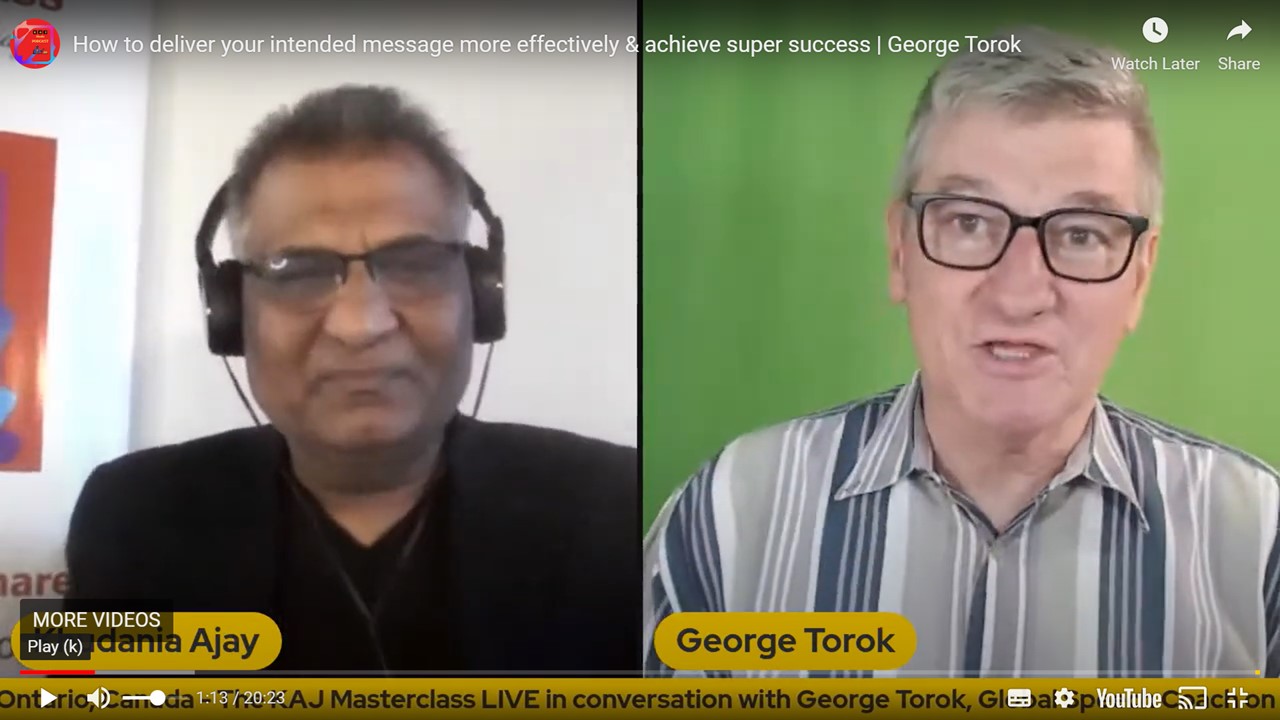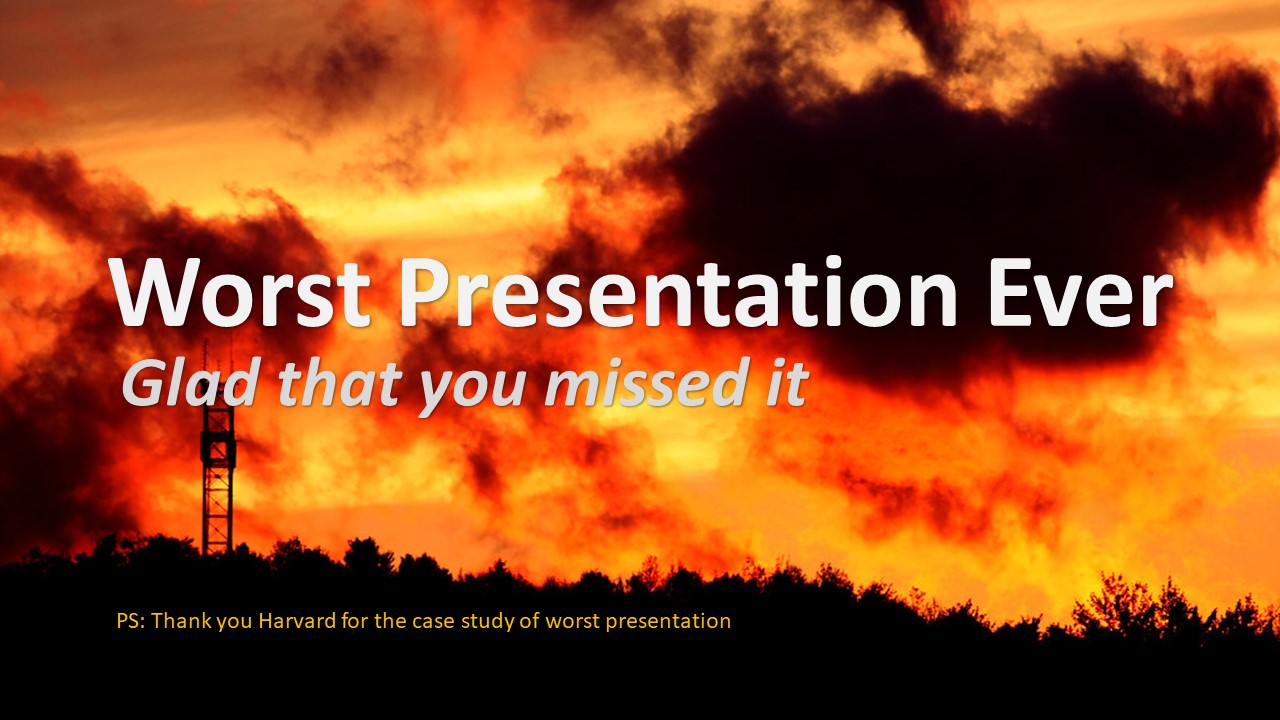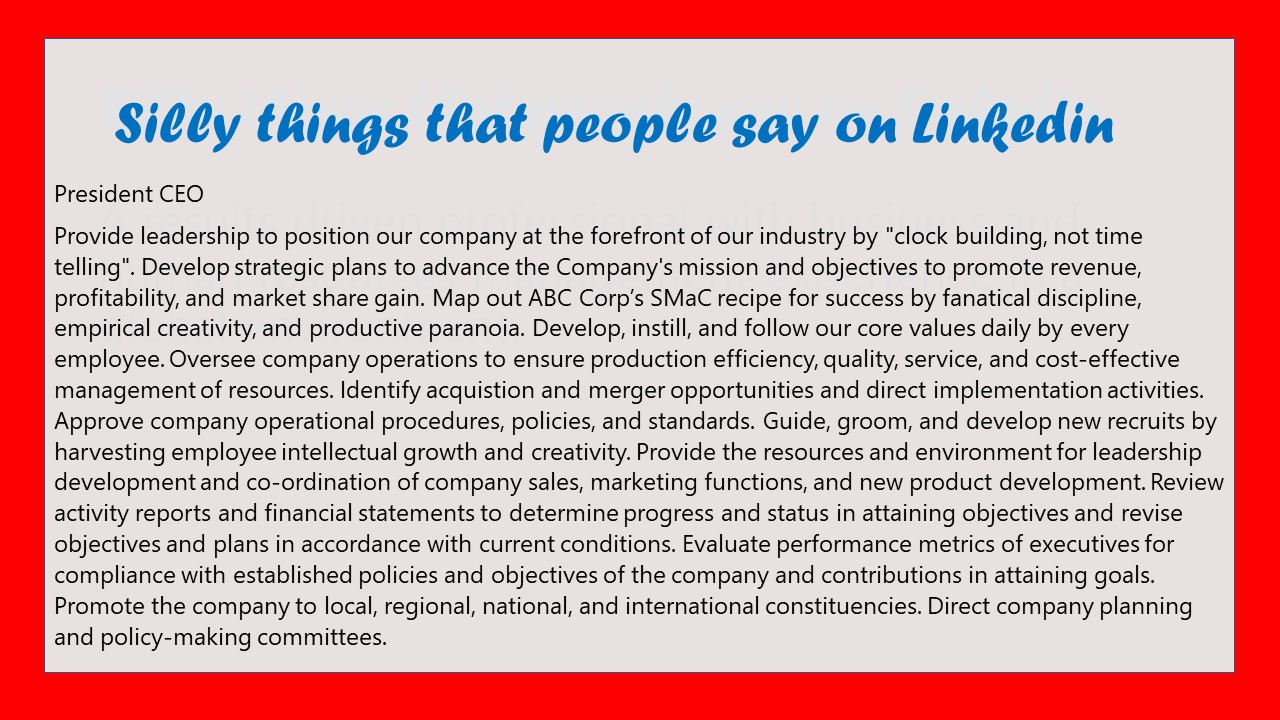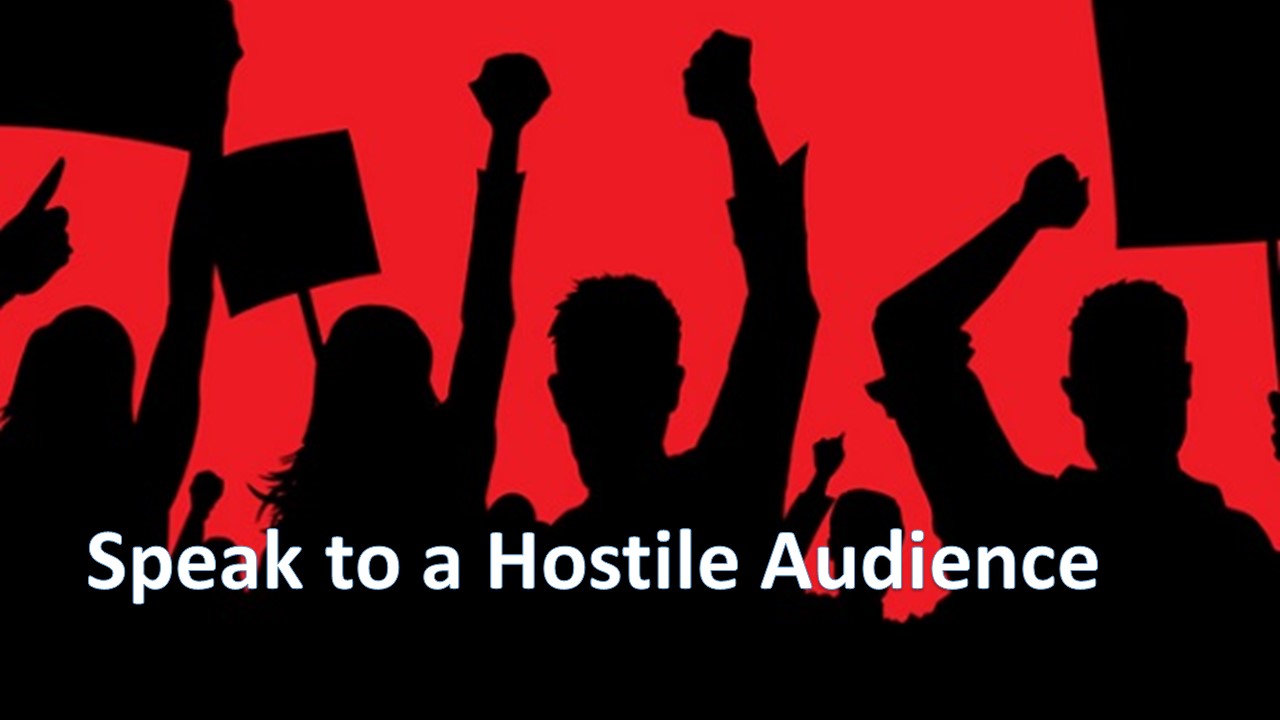Speak with more confidence
When you are speaking, which do you believe Is more important? To feel confident or to appear confident? Think about that. You probably want both, but you can’t have both all the time. The question is which is more important? The answer is, it’s more important to appear confident. Why? Because that is the perspective of your listeners. Once you recognize that it’s about the audience experience and not your experience three factors work in your favor.
Chief Executive Speaking
Your chief executive officer, CEO, could be the most powerful spokesperson for your organization. The market wants to hear from the leader. Customers and clients want to know the CEO. The media are often eager to interview and quote an effective leader. Is your organization getting the best return on the speaking skills of your leader?
Let’s review the results of a few effective speakers and a couple who were not.
Five Phrases to Avoid when Speaking
If you are a leader or hope to be a leader in your company, organization or community – your words matter. It matters what you say and were wise enough not to say.
Are you paying attention to your words and implications? Guess what? Your audience pays attention and draws inferences and conclusions from your words. Here are five phrases that are counterproductive to your message because they can confuse or distance your listeners. People might not consciously notice these flaws, but these phrases can cause unconscious dissonance in your message.
Mind your words because they matter. Be precise and prudent with your choice of words. Remove words that are wasted, distracting or annoying.
Pause… because…
Pause right before an important point to create suspense and heighten the value of the important point because they need to catch their breath and wait a few seconds for the message.
Worst Presentation Ever: Silly Phrases pt 3
What can you learn from the worst presentation? There is no Perfect Presentation. The goal is to deliver an effective presentation. An effective presentation is one that informs and moves the audience. As a presenter you can learn from the techniques of effective presenters. What did they do that worked well and you might be able to use in your presentations?
Worst Presentation Ever: Part Two: Clear?
We Can’t Hear You. The next flaw was that we didn’t hear or understand many of his words. Why? He mumbled often. Mumbling is a sign of incomplete thoughts and the lack of editing your words for a clear message.
His voice often trailed off at the end of his sentences. That’s a common mistake made when a speaker is thinking about their next thought instead of finishing the current thought. He wore a lapel microphone and often turned his face away from the mic which meant that his voice faded. That’s a mistake made by novice speakers. He didn’t know how to use a microphone.
Worst Presentation Ever: Harvard Professor
Imagine the worst presentation ever. Now, read this post to compare. Read on to discover what not to do during your presentation. Learn from the mistakes of this Harvard professor.
He had impressive credentials. He was Harvard educated and a Harvard educator. He’d authored at least 15 books. He was endorsed by Jack Welch and had spoken to business executives around the world. Wow! Sounds impressive! But… he was a lousy speaker. Calling him “lousy” is being kind and polite to him but not to his audience. He certainly wasn’t kind and polite to the audience.
How to Tame a Hostile Audience: Lessons from Marc Antony
What can you do when facing a hostile audience? How can you speak so they listen? How might you connect with them so they see your side of the message? Those are difficult challenges that we can learn to face by learning from Shakespeare – in particular the speech that Marc Antony gave after the death of Julius Caesar.
Notice the shift in tone of the audience and the techniques used to persuade the audience to change their thinking. Let’s visit the scene and listen to the speech and the changing tide of the audience.


